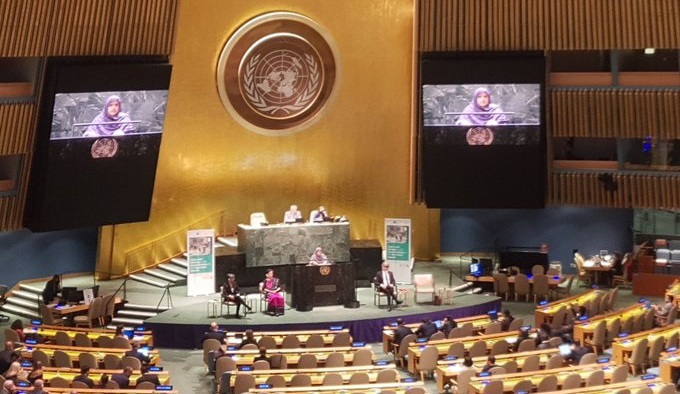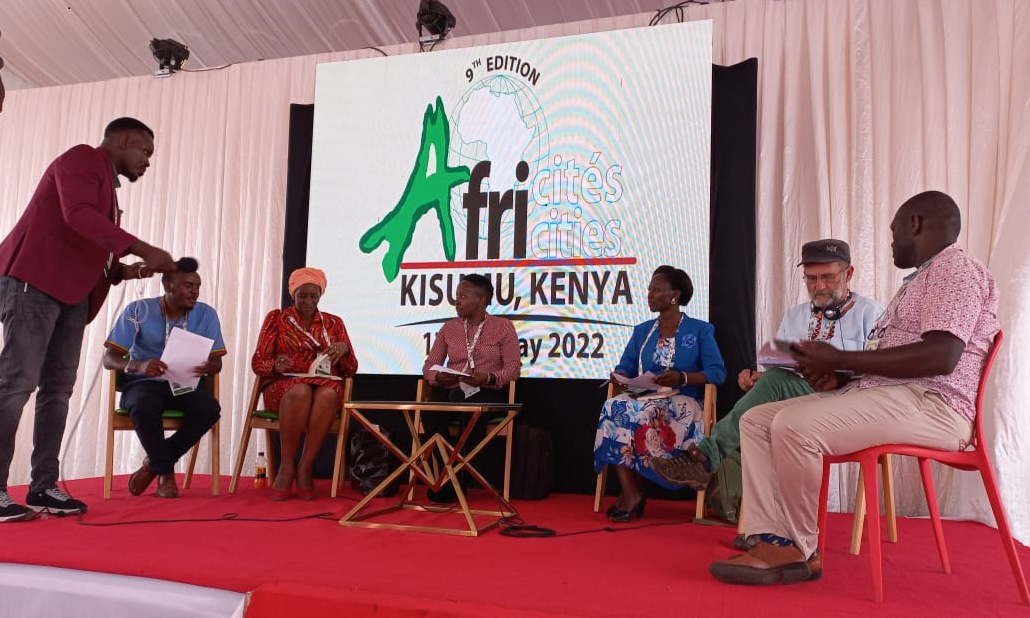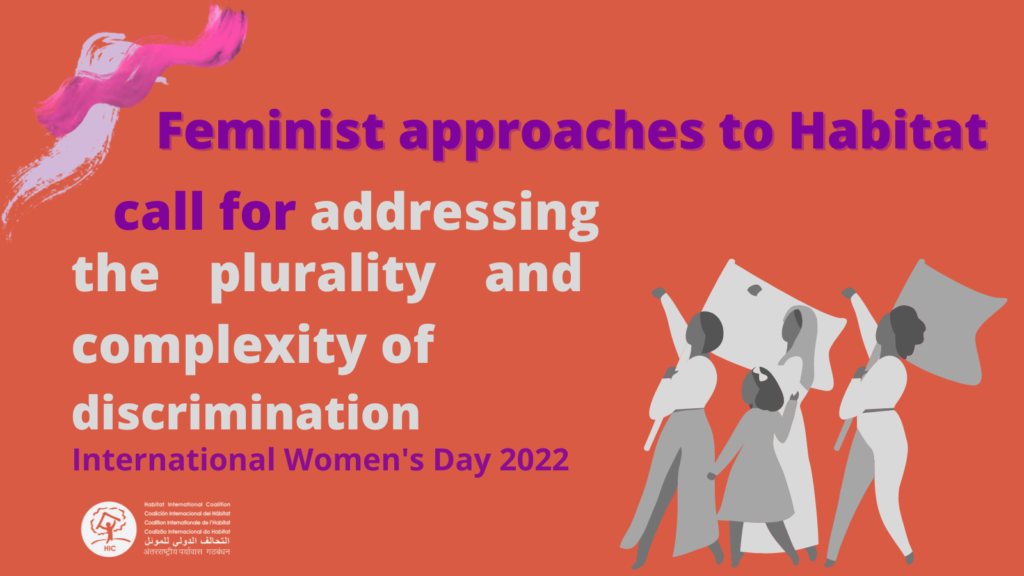
On the 8th of March, feminism reclaims the social debt that democracies owe to women
Statement by Ana Falú, HIC Board Representative of Women’s and/or Feminist Movements
The 8th of March slogans are spreading: women claim equal pay for equal work, recognition for care work, a life free of violence and political participation. The voices of millions of women on the streets are constituting a new political subject.
More than 100 years have passed since s ocialist w omen in Copenhagen (1910) decided to celebrate International Working Women’s Day. Since the beginning of the 20th century, the suffragettes – these revolutionary women – raised two main demands: women’s suffrage and the end of sexual slavery.
March is the month of commemoration, celebration and reflection on new and renewed strategies to secure gains and move towards active citizenship for women and all those marginalised by intersectional identities . Simply put: without social justice there will be no development nor democracies. Feminism and gender justice propose modifying behaviours that persist in naturalised forms of discrimination, whether expressed or hidden, in a world that is patriarchal, colonialist, androcentric and thought of in terms of the universal productive, white, young and heterosexual man, which excludes the majority of men, as well as all women and LGBTQI+ people.
In the context of the pandemic and post-pandemic, this month of March should help us think critically and consider the context of a globalised world, dominated by technology and hyper-communication. At the same time it is a world of exclusion, a world of gigantic economic gaps, where a few own most of the wealth and the majority continues to lack rights related to work, housing, land, city, services, infrastructure, connectivity and security, among many others. Among marginalised population segments, the majority are women, who are increasingly solely responsible for their households and dependents (children, the elderly, the disabled, the sick, etc).
The pandemic left unavoidable evidence: women are the caregivers of humanity, yet care work continues to be devalued and unrecognised. The violence suffered by women, which goes as far as murder and femicides, is increasing and becoming more complex. Most women are part of the informal market; if they do not work, they do not eat and neither do those who depend on them.
We live in a world of contradictions and obscene inequalities that are not only material but also political. These inequalities are omitted under supposed neutrality and diluted in the normative concepts of family, home and population.
Therefore, a plural feminist perspective recognises women and LGBTQI+ people within their diverse and multi-layered identities that are shaped by ethnicity, race, age, sexual orientation, disability status, and not least by the place where they live and the conditions in which they live. This includes the informality experienced by the majority, which is treated as if it were a minority issue.
This 8th of March, HIC continues to claim:
- The right to live a life free of violence, which not only persists, but has become more complex, both in public and in private.
- The right to care and to be cared for. The recognition of care as work.
- Equal rights and opportunities related to labour, education, and the political, social and cultural spheres.
- Commitment to changing power dynamics: localisation and proximity versus more transport, more distances, or more waste, less water, more disasters that first affect women, those who produce resilient responses.
- Thinking from a feminist perspective, i.e. not only in terms of women but in terms of a new paradigm that considers human relations, care, people and nature. We need to be bold and creative. We need to think about domestic and daily life in relation to productive life, reproduction and production. We need to think in circularity and in continuity. We need to revise theoretical, political and ethical paradigms in order to respond to the persistent social debts owed to women, as we do in many HIC Members organisations in different regions. This is what HIC promotes through its inter-regional co-learning spaces: sharing, connecting, learning from each other, and building our social force through strong partnerships to advance our rights at the global level.
Feminism politicises everyday life, to account for the power relations that are reproduced in the materiality of the built city and its territories; in planning and in the omission and devaluation of marginalised subjects of rights.
Feminist cities and territories are plural and multicultural and defend the right to the city and housing for all
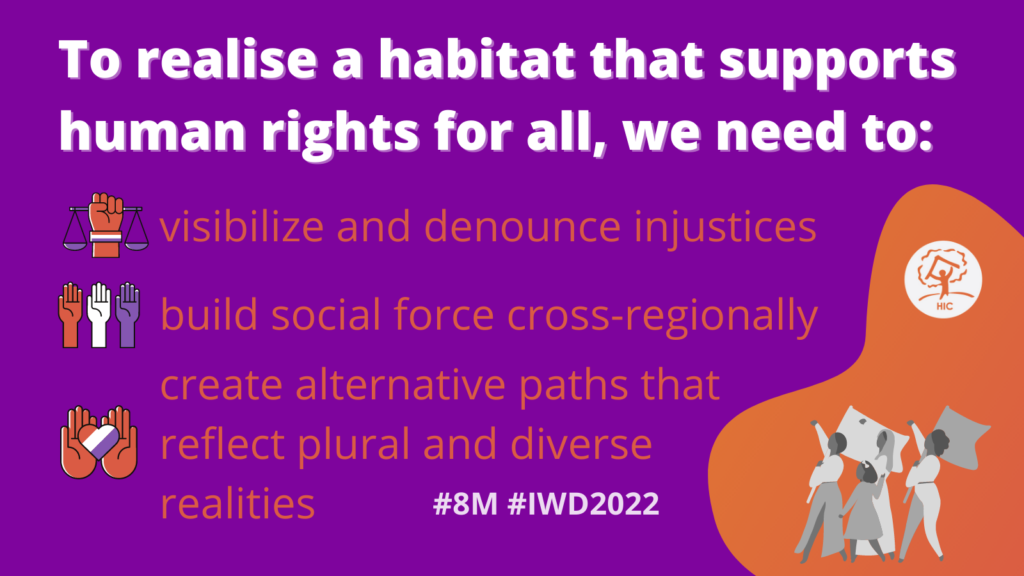
Creating Inclusive Cities through Gender Equality
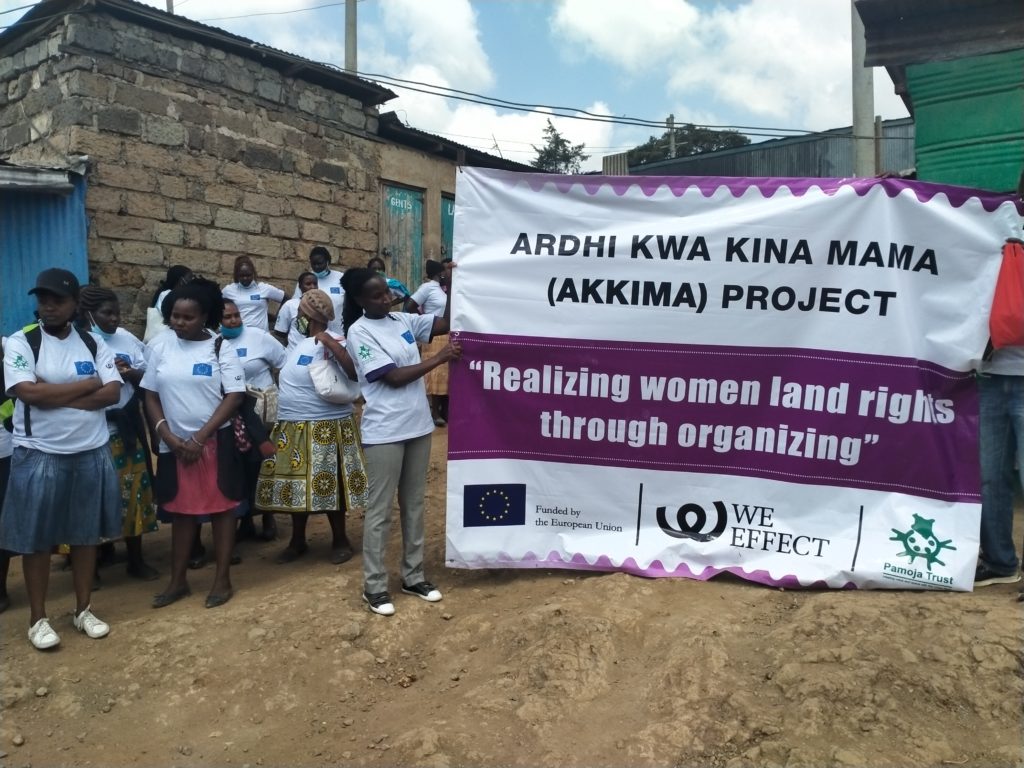
Read the article ‘Creating Inclusive Cities through Gender Equality, with Civil Society as the Protagonist’, with lessons and experiences from Africa, Latin America and the Middle East on the application of a gender-responsive approach to urban and territorial issues.
This article has been developed with inputs from the facilitators of the Co-Learning spaces initiative on feminist approaches to habitat: Eliane Sylvie Mfomou, Hazem Abdallah, Andrea Sofía Casabuono, Mara Nazar and Diana Wachira.
Originally published in Crítica Urbana magazine. View or download the complete 23rd issue in PDF format
Strengthening Feminist Approaches to Habitat
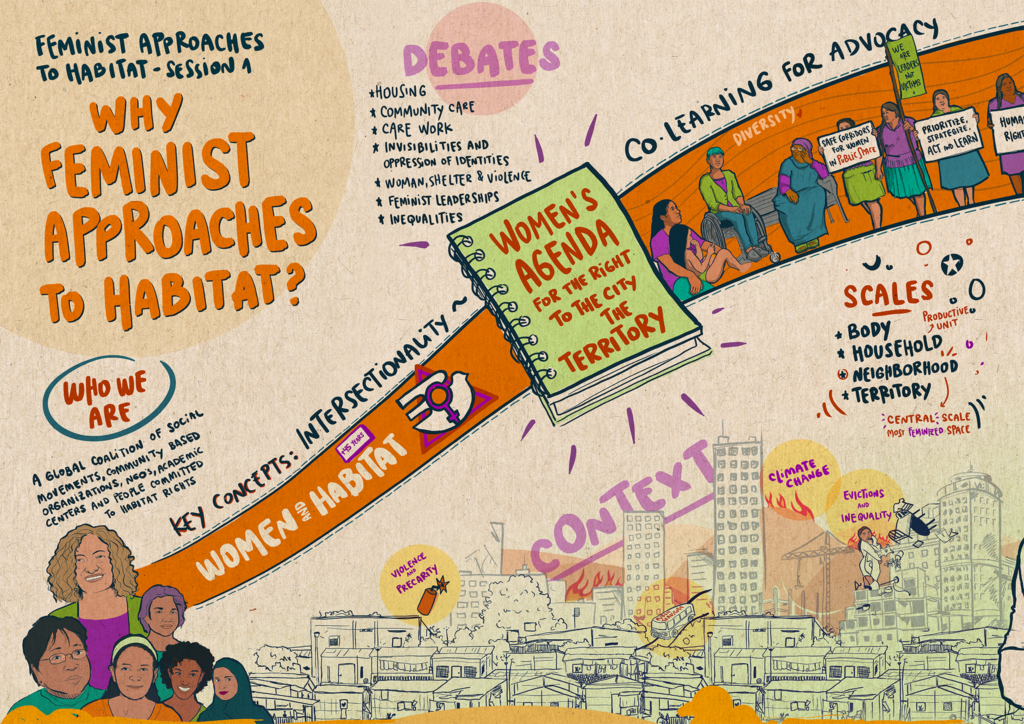
This question was at the heart of the first in a series of HIC co-learning spaces, which over six months brought together a team from the HIC GS and regional offices, the KNOW programme, and most importantly, a dedicated and experienced group of six facilitators from the Africa, MENA and Latin America regions: Marina Khamal (Social Democratic Forum, Yemen), Mara Nazar (CISCSA, Argentina), Andrea Casabuono (Habitar Argentina), Diana Wachira (Pamoja Trust, Kenya), Eliane Silvie Mfomou (CONGEH, Cameroon) and Hazem Abdallah (Dibeen Association for Environmental Development, Jordan).
Click here to find out more about the HIC Feminist co-learning space.

